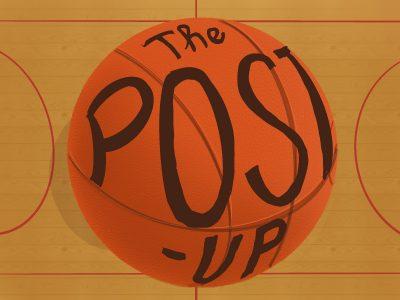The referee problem in the NBA has more to do with interpersonal values than in-game conduct.

The frustration that fans, players and coaches alike have toward game officials has become increasingly evident less than two months into the regular season. While the incidents and negative feedback is ramping up, these complaints are not new.
Houston Rockets point guard Fred VanVleet was fined by the league on Nov. 25 for “confronting and directing profane language” toward the officiating staff. His 2023 comments about the referees resurfaced on social media, as he said that consumers aren’t watching games to see referees, but to see the players perform.
In the same post-game presser, VanVleet lamented that the consistently poor judgment calling from the referees resulted in “losing a little bit of the fabric of what the NBA is and was.”
Most players and coaches aren’t necessarily cursing out officials the way Ime Udoka, Kelly Oubre Jr. and Fred VanVleet have. However, they have not shied away from publicly sharing their frustrations with officials during and after games.
The NBA has worked to mitigate some of these concerns and prove that officials are not above being held accountable. There are multiple venues that allow for correction or invite critique, such as the Coach’s Challenge.
The Coach’s Challenge entitles a head coach to at least one instant replay review for certain events outlined in the NBA Rulebook. Golden State Warriors forward Draymond Green has been particularly successful in partnering with coach Steve Kerr to use a challenge, and many believe this has played a significant factor in the Warriors’ surprisingly fruitful start to the season.
The 2023 Collective Bargaining Agreement cultivates transparency between the NBA and the Players Association. Both can initiate regular meetings to discuss “the relationship and interactions between players and referees” as well as in-game discipline.
In 2015, the NBA introduced Last Two Minute, or L2M, reports, which are play-by-play accounts of the last two minutes of any qualifying game in which “one team’s lead over the other is three points or fewer” at any point during that time.
The L2M report initiative was implemented as part of the league’s vision to make the game more accessible to fans and promote accountability, whether that manifests as a greater understanding of rules or the roles that officials play.
This is not to suggest that L2M reports are perfect, even after a period of reflection. It’s a given that humans are prone to error: Basketball is an extremely fast-paced sport and it’s easy to miss a call in the moment.
No one is calling for the absence or sanctioning of referees, and the vast majority of us recognize their integral presence in our enjoyment of games. Without officiating, we wouldn’t experience the thrill of an “And one!” yell.
However, the criticism fans have for the officials isn’t necessarily a gripe against their unintentional oversights. Fans, players and coaches aren’t looking for remorse. They don’t even need objectivity. What they desire is acknowledgment.
For the most part, officials are receptive to challenges made by the players or coaches to identify missed calls. The disconnect occurs when the challenges err on the side of being “too” animated, and if the official interprets insistence as bad faith.
For example, Sacramento Kings head coach Mike Brown made an irate beeline for the referee after a missed call. Kings reporter Sean Cunningham suggested the official showed Brown grace by awarding the coach a technical foul instead of an ejection. But if this was a true act of grace, Brown would not have received punishment at all.
The success rate of challenges from coaches or players is largely contingent upon the manner in which the officials receive it.
There’s respect, and then there’s respectability politics. Officials have the explicit power to regulate behavior, which includes establishing a tone. Tone policing is evident in the way referees and league officials penalize players in the form of in-game punishments and fines.
Tone policing is the method in which people object to hearing a message on account of the way in which it is received as opposed to what is actually being said.
While VanVleet has a track record for taking issue with the officials’ decision making, he prides himself on being able to give credit where credit is due. On Monday night, he praised official Ben Taylor for effectively refereeing a game, which is ultimately the desire of all players.
Those who deem VanVleet’s change in remarks toward officials an “about face” are, perhaps unintentionally, implying that players seek to antagonize referees when they play. But, players are simply expressing their frustration in the way they know how, which may often involve profane language.
Poor officiating is not a new phenomenon, so it ultimately won’t estrange fans. The players and coaches have already expressed how they feel — and now it is up to the referees to listen.
The ball is in their court.

















































































































